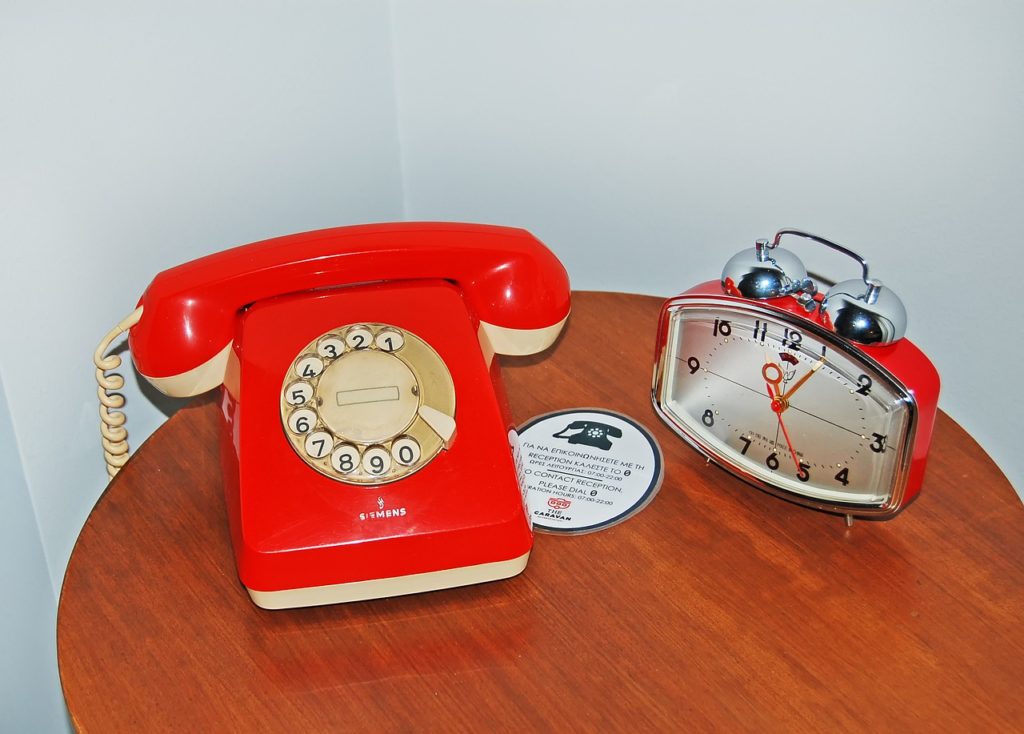
Twenty years ago, I lost a big potential client because I didn’t have a big office with teams of people sitting at desks that the client could come visit. Fast-forward to the time of coronavirus, when anyone who can is conducting distance business. Amid the changes, there are lots of Zoom meetings. But there’s also something unexpected. The phone seems to be making a comeback.
Up until recently, I would sit in my home office most days and “talk” to clients all day without ever opening my mouth to speak. All those conversations were through Twitter, Facebook, Slack, and conventional email. And while I was productive and sharing ideas, it was all a bit unsatisfying. Even when a problem wasn’t getting resolved and needed a real-time phone conversation, my clients and colleagues were reluctant. I remember phoning a client begging for a quick call to address an urgent question and she responded with a short text that didn’t move the issue forward. “Too busy to talk.”
Under imposed physical distancing, I find myself on the phone all day. Recently I spoke with a client of many years who is typically terse on calls. He usually treats words as an endangered species that must be used sparingly. But not now. On a recent call, we spent about 15 minutes talking about our families and coronavirus. Then he asked me a question which easily could have been answered in an email. He just wanted to talk.
The Magic of the Phone
There is something wonderful about hearing the human voice that can’t be replicated in email or text. On the phone, people reveal more about themselves than in person or even on a video chat where they are acutely aware of how they appear. They can be more guarded in email or text where they can take back the words they write before hitting send. But on the phone, precisely because they can’t be seen and because it is in real time, the emotions they are feeling come through loud and clear. That’s why phone screenings for employment interviews can be very useful to get an initial sense of someone. What you hear is what you get: the power or not of your ideas, personality and passion.
A few rules for best use of the phone:
- Schedule time to talk. Much the way you would schedule a Zoom meeting, send an email ahead of time and find out what might be a good time to call. For people who are more comfortable with text or social media, a call out of the blue might be jarring.
- If you do decide to do a call without scheduling, be sensitive to the fact that you may be catching someone while cooking lunch, dealing with children or some other distraction. Ask if it’s a good time and if it’s not, schedule a better time. Follow up with a calendar invite as the person you are talking with may not remember.
- If you get voice mail, always leave a message. If you don’t hear back within a day or so, you might send a text or email and let them know that you called to check in. Many people are out of the habit of checking voice mail, and some may not even know they have it. (Yes, someone told me this.)
- Avoid putting your caller on speaker phone. The quality isn’t good and your whole house doesn’t need to hear your conversation.
- Make sure you are speaking into the speaker on your phone.
- Smile when you speak. It will put some cheer in your voice. It may feel weird but it does work.
Reach out and Touch
If anything good can be found in the COVID-19 crisis, it may be that the lowly, oft denigrated telephone might be in vogue once again. Social media, video chat and other virtual tools aren’t going away. But during these months of living virtually, when we truly want to connect, let’s reach out and touch each other with a call.

